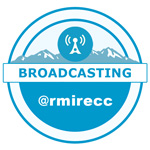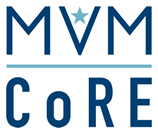Attention A T users. To access the menus on this page please perform the following steps.
1. Please switch auto forms mode to off.
2. Hit enter to expand a main menu option (Health, Benefits, etc).
3. To enter and activate the submenu links, hit the down arrow.
You will now be able to tab or arrow up or down through the submenu options to access/activate the submenu links.
Locator
Contact
Search
VA »
Health Care »
MIRECC / CoE
» Rocky Mountain MIRECC »
Rocky Mountain MIRECC for VA Suicide Prevention - Kelly Stearns-Yoder
MIRECC / CoE
Rocky Mountain MIRECC for VA Suicide Prevention - Kelly Stearns-Yoder

Updated: 8 March 2018
Biography
 Kelly Stearns-Yoder
Kelly Stearns-Yoder
- Lab Manager
- Contact information:
303.399.8020 ext. 6103
Kelly.Stearns@va.gov
Recent Publications
- Persistent Symptoms and Objectively Measured Balance Performance Among OEF/OIF Veterans With Remote Mild Traumatic Brain Injury
- 27 February 2018 - RMIRECC authors Jeri Forster PhD, Kelly Stearns-Yoder MA, and Lisa Brenner PhD participated in writing this paper along with colleagues from the University of Colorado School of Medicine, Physical Medicine and Rehabilitation Department. This study explored the relationships between dizziness, fatigue, and depression and PTSD and balance in Veterans with mTBI. "Findings suggest that dizziness, fatigue, depression and PTSD, and time since most recent mTBI may influence balance performance." Read more
- Brenner LA, Stearns-Yoder KA, Hoffberg AS, Penzenik ME, Starosta AJ, Hernández TD, Hadidi DA, Lowry CA. Growing literature but limited evidence: A systematic review regarding prebiotic and probiotic interventions for those with traumatic brain injury and/or posttraumatic stress disorder. Brain Behav Immun. 2017 Jun 9. pii: S0889-1591(17)30192-7. doi: 10.1016/j.bbi.2017.06.003.
- Traumatic brain injury (TBI) is highly prevalent among a wide range of populations, including civilians, military personnel, and Veterans. TBI sequelae may be further exacerbated by symptoms associated with frequently occurring comorbid psychiatric conditions, including posttraumatic stress disorder (PTSD). This is particularly true among the population of military personnel from recent conflicts in Iraq and Afghanistan, with a history of mild TBI (mTBI) and PTSD. The need for efficacious treatments for TBI and comorbid PTSD is significant, and evidence-based interventions for these frequently co-occurring conditions are limited. Based on findings suggesting that inflammation may be an underlying mechanism of both conditions, anti-inflammatory/immunoregulatory agents, including probiotics, may represent a novel strategy to treat TBI and/or PTSD-related symptoms. The focus of this systematic review was to identify and evaluate existing research regarding prebiotic and probiotic interventions for the populations of individuals with a history of TBI and/or PTSD. Only 4 studies were identified (3 severe TBI, 1 PTSD, 0 co-occurring TBI and PTSD). Although findings suggested some promise, work in this area is nascent and results to date do not support some claims within the extensive coverage of probiotics in the popular press. Published by Elsevier Inc.
- KEYWORDS: Bifidobacteria; Lactobacilli; PTSD; Persistent post-concussive symptoms; Posttraumatic stress disorder; Prebiotic; Probiotic; Synbiotic; Systematic review; TBI; Traumatic brain injury
- Return to Top
Research Projects
- Immune Activation and the Polytrauma Clinical Triad Research Study
- Research Study Leader: Amy Starosta, PhD
Research Study Co-Leader: Lisa Brenner, PhD - Description: This a cross-sectional study examining the relationship between inflammation and symptoms of chronic pain, post-traumatic stress disorder, and persistent post concussive symptoms following traumatic brain injury. We are seeking male Veterans between the ages of 18-45 to attend one study session at the Denver VA. Participants will complete questionnaires and provide a blood sample.
- Return to Top


























